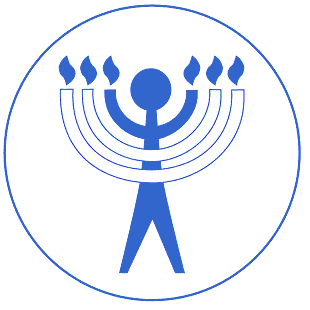The Jewish Humanist, November 1987
November is Jewish Book Month, a time to honor the literary creativity of contemporary Jewish writers – or to honor the writing of talented non-Jews who choose to write about Jews.
The best way to celebrate this special month is to read Jewish books – not just any old Jewish books, but good ones. In a country like America, where the Jewish literary establishment is very powerful, where Jewish culture and Jewish identity arouse widespread positive interest, and where successful writers, both Jewish and non-Jewish, vie for the attention of the large Jewish reading public, there is no shortage of appropriate books.
During Rosh Hashanah and Yom Kippur I chose readings from five new books to illustrate my presentations on ethics. Each of them is a book worth reading and discussing.
Here they are.
Power and Powerless by David Biale. Biale is a professor of Jewish history at the University of California in Berkeley. He proposes a provocative thesis that many modern Jews are not comfortable with, because it does not conform to the image of the Jew which they wish to present to the Gentile public. Jews usually see their historic experience as one of weakness and powerlessness, a continuous story of suffering and humiliation. This perception feeds into the need to appear as victims of powerful enemies and to solicit sympathy and pity. But Biale disowns this perception. He maintains that for most of Jewish history Jews were indeed powerful in the environments where they chose to live or found themselves. The power was usually not military. However, it might be economic. The history of the Jews, according to Biale, is not one long tale of woe. It is a story of the effective use of -talent and connections to make useful changes and to provide strong defenses. Although we Jews are often more comfortable with losing than with winning, we cannot understand our roots if we insist on projecting our present anxiety onto our past experience.
Out of Step by Sidney Hook. This book is the autobiography Sidney Hook, one of America most prominent humanist philosophers – and one of America’s mc controversial intellectuals. A child of Jewish New York, Hook became a Marxist radical during his student days at CCNY (the training ground of so much of the Jewish intellectual elite). In the decades that followed, as established his -credentials as philosopher and an academician, he repudiated his Marxist ideology and embraced a more moderate social democratic liberal posture. Throughout his career, given his strong Jewish attachments, he fought for the legitimacy of his Jewish atheistic position. Controversy entered his life during the Vietnam era and the radicals and championed the old liberal notion that a school of higher learning should be open to hearing all opinions, right and left – and should not become a political instrument of political radicals. Hook’s autobiography reveals that he still retains his feisty and acerbic style in his 80’s
Anne Frank Remembered by Miep Gies. This memoir is the story of the woman who befriended the Frank family in Amsterdam and supported them in their hiding place. An employee of Otto Frank, Miep was confronted with a terrifying moral choice. Should she risk her life and the life of her family to rescue Jewish friends? Her response was without hesitation. Even when her friends were arrested, she recklessly ran to Gestapo headquarters to appeal for their release. Her story dramatizes the moral courage of many Gentiles, who, to no personal advantage for themselves, chose to save Jews. What makes her memoir so powerful is that it is told with no self-conscious heroism.
The History of the Jews by Philip Johnson. Johnson has become a well-known popular historian, whose conservative opinions on the malaise of modern society have been enshrined in a series of successful books. Whether you agree or disagree with his conclusions his style and the force of his opinions are of compelling interest. Given his ethnic background, it was surprising that he chose to devote such extensive research to the history of the Jews. But he is obviously fascinated by us and by our achievements. While his presentation of the early history of the Jews is dominated by a naive reliance on the truth of the Biblical myths, his analysis of the evolution of the Jews in the Diaspora is nothing less than brilliant. He is not troubled by the economic role of the Jew in both the Middle Ages and in the contemporary capitalist world. He finds it fascinating and deals with it realistically. This history is written by an admirer of the Jews – but not one overly sentimental or fawning.
To the Land of the Cattails by Aharon Appelfeld. Appelfeld is an Israeli who spent his youth in Bukovina in Eastern Europe. He is intimately familiar with the Holocaust and has devoted his writing career to dramatizing the devastation of his people through short somewhat surrealistic novels. Badenheim 1939 made him famous. And this novel follows in the same tradition. A Jewish woman is accompanied on her ill-omened trip to death by her adolescent son. Neither she, nor the people with her, are willing to acknowledge what is happening to them. All is denial. And this denial, in the midst of the most ominous warnings, is Appelfeld’s commentary on the Jewish response to the inconceivable horror of the Holocaust.
If you are looking for good Jewish reading, any one of the five will do.

